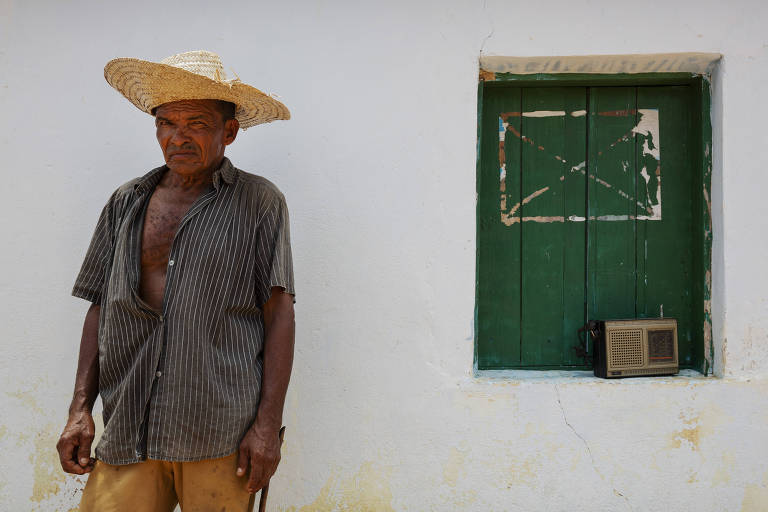Sitting in a plastic chair, retired farm worker Raimundo Nonato, 63, squints his eyes and leans over Folha's computer screen, which shows a photo of presidential frontrunner Jair Bolsonaro (PSL).
"Dunno who's that," he says, and only minutes later repeats the same thing when faced with a photo of Fernando Haddad (PT), Bolsonaro's opponent in the presidential runoff happening on Sunday (28th).
In a presidential campaign characterized by social media information overload, rural communities in the northeastern backcountry still rely on TV and radio to follow candidates and choose who to vote for.
According to the most recent Brazilian Census data, collected by IBGE (Brazilian Instituto of Geography and Statistics), at the end of 2016 35.2% of the Brazilian population ten years old and over had no internet access, which amounts to 63.3 million people.
Raimundo Nonato is one of them -- he doesn't know what a meme is, he doesn't use WhatsApp and has never received a fake news item in his phone.
He lives in a hamlet called Sítio Recanto (Little Corner) a community with no electricity or internet, in the outskirts of Campo Alegre de Lourdes, Bahia, 512 miles away from the capital Salvador, where 71% of the population lives in the rural area.
He still relies on a 19th-century technology, the radio, to follow the candidates' policy proposals.
With his old battery-powered radio tuned in a neighboring station, he listens to the mandatory political broadcast and the news.
"I only know them by name. I know there is one called Adah (Haddad), who is Lula's guy, and one Bolsonaro, that plans to give guns to people," he says, while making it clear that he is aware of the main campaign topics.
Sometimes, when he goes to the neighboring village, he watches TV at a relative's house. But in the last few months he had no time to leave his fields - when he comes home from work, he says he's too tired to go outside again.
He does have a cell phone, but it's not a smartphone. He only uses it when he goes to Campo Alegre de Lourdes town center.
Translated by NATASHA MADOV
Read the article in the original language
